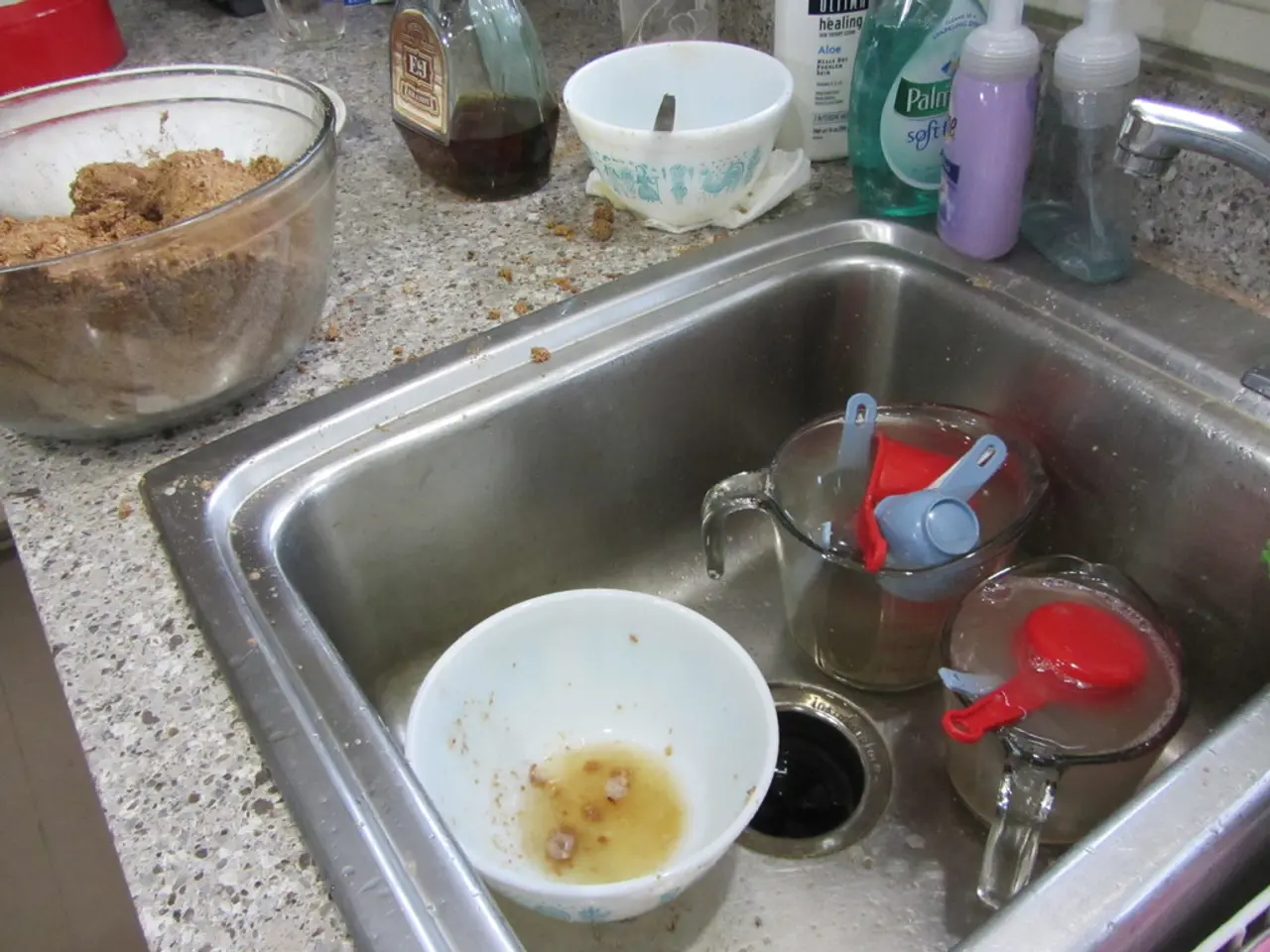Youngsters in Rustavi play on polluted playgrounds, despite the authorities disregarding the dangerous industrial heritage
In the bustling city of Rustavi, Georgia, a concerning environmental crisis has emerged, as a recent study reveals that the city and its surroundings are contaminated with harmful substances. The study, conducted by Arnika Association and Gavigudet, has highlighted the presence of dangerous chemicals such as DDT and polychlorinated biphenyls (PCBs) in various locations, posing potential health risks to the local population.
The substances in question are known to cause harm to the nervous and hormonal systems, liver, reproductive health, and increase cancer risk. DDT and PCBs have been found in Rustavi's river sediments, playgrounds, street dust, and even in local food products like eggs and fish from the Mtkvari River.
One local egg, for instance, exposes a person to dioxin levels several times higher than the European Food Safety Authority's daily consumption limit. Similarly, eating fish from the Mtkvari River carries worrying levels of legacy pollutants and heavy metals.
The high levels of DDT and PCBs in Rustavi's playgrounds are particularly alarming. Some values exceed background levels by up to 3,500 times and 180 times, respectively. Moreover, the chemical profile of DDT in soil and eggs suggests it is still being used or released today, despite its international ban by the Stockholm Convention in 2004.
Chromium and zinc levels in Rustavi's street dust rank among the highest reported in comparable international studies. Heavy metals cadmium and zinc, found in the study, exceeded Czech hygienic standards, with cadmium posing risks to fetal development and excessive zinc potentially causing digestive problems and anemia.
Researchers emphasise that solving this crisis requires cooperation with civil society, independent experts, transparent data sharing, and involving local communities in decision-making. The study recommends stopping the use of illegal pesticides, cleaning up contaminated playgrounds, enforcing environmental and food safety laws, and securing long-term monitoring of industrial emissions and legacy waste sites.
Without government action, the contamination in Rustavi is expected to persist for decades. For more information, contact Martin Zelinka from Arnika Association at [email protected]. It is crucial that steps are taken to protect the health and wellbeing of the people of Rustavi and to ensure a safer environment for future generations.




